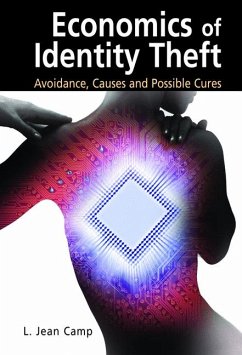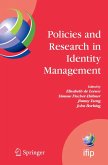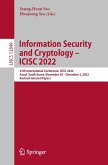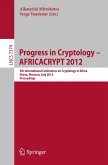The Economics of Identity Theft: Avoidance, Causes and Possible Cures, a professional book, discusses privacy as multi-dimensional, and then pulls forward the economics of privacy in the first few chapters. This book also includes identity-based signatures, spyware, and the placement of biometric security in an economically broken system, which results in a broken biometric system. The final chapters include systematic problems with practical individual strategies for preventing identity theft for any reader of any economic status. In conclusion, four startling previews of the future are written as scenarios.
The Economics of Identity Theft: Avoidance, Causes and Possible Cures is designed for a professional audience composed of practitioners and researchers. This book is also suitable as a secondary text for advanced-level students in computer science, economics and several other disciplines.
Dieser Download kann aus rechtlichen Gründen nur mit Rechnungsadresse in A, B, BG, CY, CZ, D, DK, EW, E, FIN, F, GR, HR, H, IRL, I, LT, L, LR, M, NL, PL, P, R, S, SLO, SK ausgeliefert werden.









